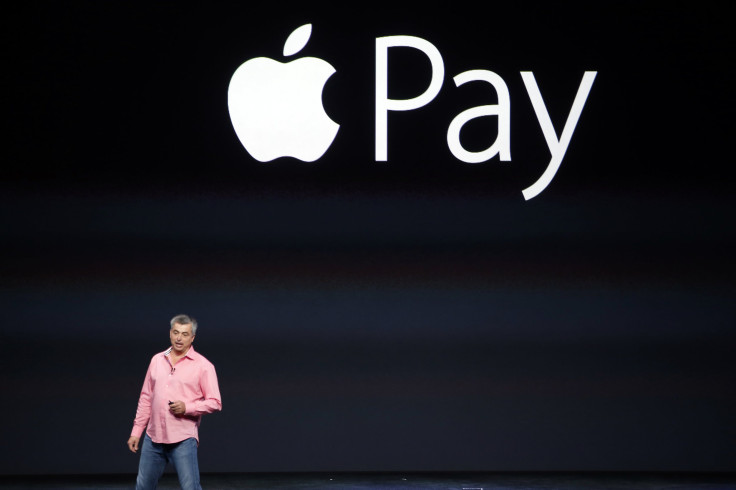Apple Pay And Alibaba: Apple Mulls Mobile-Payments Deal With China's Ecommerce Giant

Apple CEO Tim Cook said recently he planned to meet soon with Jack Ma, founder of Chinese e-commerce giant Alibaba Group, to talk partnerships. Apple officials on Friday were tight-lipped about whether the get-together has taken place, but Cook has a number of good reasons to caucus with Ma, starting with mobile payments.
Alibaba could give Apple Pay, Apple's recently launched mobile payments service, a lucrative entry point into China’s growing mobile payments sector. Cook and Ma teased the possibility of a meeting between the two in October during the WSJ.D conference in Laguna Beach, California.
Such a partnership could be hugely beneficial for Apple, which is looking to expand its presence in China. But it would also benefit Alibaba as it looks to grow its customer base both online and in physical shops.
“[Alibaba would] have access to what I’d consider a higher-end audience in China through Apple products,” Morningstar analyst RJ Hottovy said. “For Apple, it’s just the case that nobody is going to get a wider reach of Chinese consumers as Alibaba is. That’s probably the appeal for them.”
One option for the two parties would be to use Alipay, China's version of PayPal, as a funding source for Apple Pay on iPhones in China, Hottovy suggested. This would work similarly to how credit and debit cards are tied to Apple Pay in the U.S. to process payments at physical terminals. Alibaba could also accept Apple Pay at its online shops through an app.
If Apple succeeds, it has the potential to gain a transactional piece of Alibaba’s online sales, which accounted for 80 percent of China’s total e-commerce revenue at 1.85 trillion yuan ($302 billion) in 2013, according to the Chinese government. At the moment, Alipay handles most of those transactions and the service boasts 190 million active users, according to the Wall Street Journal.
But Alipay suffers from some technical limitations. Alibaba briefly attempted to enter the physical payment space through the use of Quick Response (QR) codes to process payments, but the practice was halted in March after China’s central bank voiced security concerns, according to Reuters.
Whether or not Apple chooses to work with Alibaba to bring Apple Pay to China, the company has a number of other partners to consider as well. Among them is state-run credit card network China UnionPay. The network is said to operate 3.6 million Near Field Communications (NFC) payment readers in China, which could work with Apple Pay's own NFC technology on the iPhone 6 and other models.
Samsung Electronics recently partnered with UnionPay in October to offer an NFC payment service, according to Yonhap News.
NFC has been growing in China, and the number of handsets that support the technology is expected to more than double by the end of 2014, compared to 30 million last year, according to ABI Research senior analyst Phil Sealy.
That’s a tiny number compared to the 3.53 billion UnionPay credit and bank cards issued in China. But even a fraction of that market could be highly lucrative for Apple. "China is a really key market for us,” Cook said to Xinhua during his October visit to the country. ”Everything we do, we are going to work it here. Apple Pay is on the top of the list."
© Copyright IBTimes 2025. All rights reserved.




















